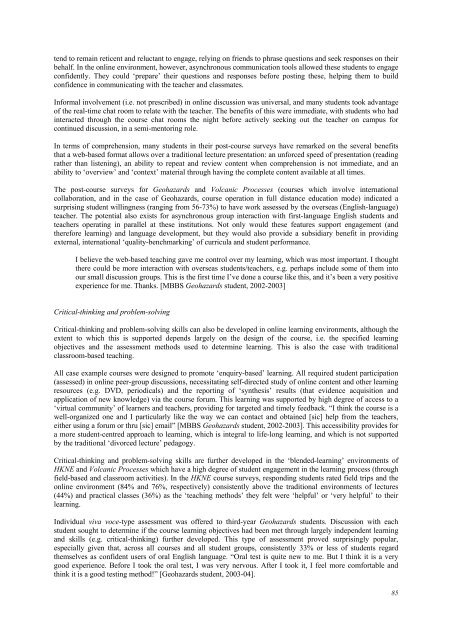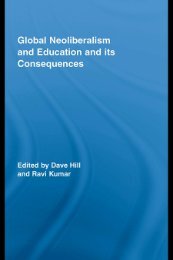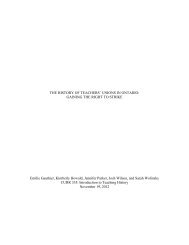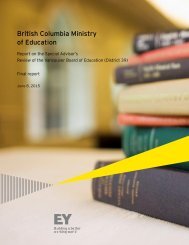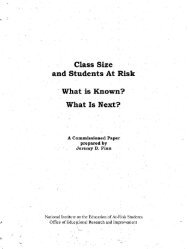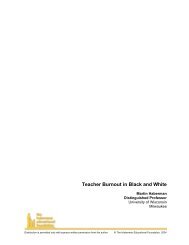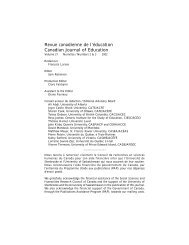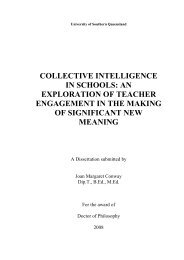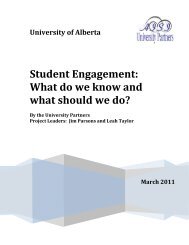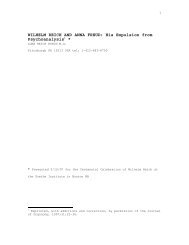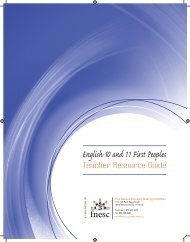October 2006 Volume 9 Number 4
October 2006 Volume 9 Number 4
October 2006 Volume 9 Number 4
You also want an ePaper? Increase the reach of your titles
YUMPU automatically turns print PDFs into web optimized ePapers that Google loves.
tend to remain reticent and reluctant to engage, relying on friends to phrase questions and seek responses on their<br />
behalf. In the online environment, however, asynchronous communication tools allowed these students to engage<br />
confidently. They could ‘prepare’ their questions and responses before posting these, helping them to build<br />
confidence in communicating with the teacher and classmates.<br />
Informal involvement (i.e. not prescribed) in online discussion was universal, and many students took advantage<br />
of the real-time chat room to relate with the teacher. The benefits of this were immediate, with students who had<br />
interacted through the course chat rooms the night before actively seeking out the teacher on campus for<br />
continued discussion, in a semi-mentoring role.<br />
In terms of comprehension, many students in their post-course surveys have remarked on the several benefits<br />
that a web-based format allows over a traditional lecture presentation: an unforced speed of presentation (reading<br />
rather than listening), an ability to repeat and review content when comprehension is not immediate, and an<br />
ability to ‘overview’ and ‘context’ material through having the complete content available at all times.<br />
The post-course surveys for Geohazards and Volcanic Processes (courses which involve international<br />
collaboration, and in the case of Geohazards, course operation in full distance education mode) indicated a<br />
surprising student willingness (ranging from 56-73%) to have work assessed by the overseas (English-language)<br />
teacher. The potential also exists for asynchronous group interaction with first-language English students and<br />
teachers operating in parallel at these institutions. Not only would these features support engagement (and<br />
therefore learning) and language development, but they would also provide a subsidiary benefit in providing<br />
external, international ‘quality-benchmarking’ of curricula and student performance.<br />
I believe the web-based teaching gave me control over my learning, which was most important. I thought<br />
there could be more interaction with overseas students/teachers, e.g. perhaps include some of them into<br />
our small discussion groups. This is the first time I’ve done a course like this, and it’s been a very positive<br />
experience for me. Thanks. [MBBS Geohazards student, 2002-2003]<br />
Critical-thinking and problem-solving<br />
Critical-thinking and problem-solving skills can also be developed in online learning environments, although the<br />
extent to which this is supported depends largely on the design of the course, i.e. the specified learning<br />
objectives and the assessment methods used to determine learning. This is also the case with traditional<br />
classroom-based teaching.<br />
All case example courses were designed to promote ‘enquiry-based’ learning. All required student participation<br />
(assessed) in online peer-group discussions, necessitating self-directed study of online content and other learning<br />
resources (e.g. DVD, periodicals) and the reporting of ‘synthesis’ results (that evidence acquisition and<br />
application of new knowledge) via the course forum. This learning was supported by high degree of access to a<br />
‘virtual community’ of learners and teachers, providing for targeted and timely feedback. “I think the course is a<br />
well-organized one and I particularly like the way we can contact and obtained [sic] help from the teachers,<br />
either using a forum or thru [sic] email” [MBBS Geohazards student, 2002-2003]. This accessibility provides for<br />
a more student-centred approach to learning, which is integral to life-long learning, and which is not supported<br />
by the traditional ‘divorced lecture’ pedagogy.<br />
Critical-thinking and problem-solving skills are further developed in the ‘blended-learning’ environments of<br />
HKNE and Volcanic Processes which have a high degree of student engagement in the learning process (through<br />
field-based and classroom activities). In the HKNE course surveys, responding students rated field trips and the<br />
online environment (84% and 76%, respectively) consistently above the traditional environments of lectures<br />
(44%) and practical classes (36%) as the ‘teaching methods’ they felt were ‘helpful’ or ‘very helpful’ to their<br />
learning.<br />
Individual viva voce-type assessment was offered to third-year Geohazards students. Discussion with each<br />
student sought to determine if the course learning objectives had been met through largely independent learning<br />
and skills (e.g. critical-thinking) further developed. This type of assessment proved surprisingly popular,<br />
especially given that, across all courses and all student groups, consistently 33% or less of students regard<br />
themselves as confident users of oral English language. “Oral test is quite new to me. But I think it is a very<br />
good experience. Before I took the oral test, I was very nervous. After I took it, I feel more comfortable and<br />
think it is a good testing method!” [Geohazards student, 2003-04].<br />
85


